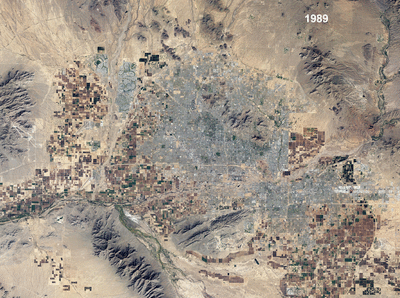Last night, I had the pleasure of hearing
David Suzuki speak at a public lecture at UBC. I heard Dr. Suzuki speak four years ago at Trent when his messages then were slightly more pessimistic (and that was pre-global financial crisis).
This time around, the messages, I think, were far more positive and inspiring. I came out of the Chan Centre at UBC feeling optimistic and telling myself that as a planner, a lot of work needs to be done on the ecological, social and political front to advance sustainability in our society.
But it's not just planners that will have a role in this, it's everyone in society who has a vested interest in preserving the ecological systems that support our economies, and those who care about the welfare of future generations. It is the responsibility of everyone in society as this is a collective task. As Marshall Mcluhan put it "There are no passengers on Spaceship Earth. We are all crew".
Here are a few messages from Dr. Suzuki's lecture that I want to share:
1) This time around, he was highly critical of Prime Minister Stephen Harper. Among many of his critiques, he focused on Harper's anti-environmental science mentality as evidenced by the downsizing of Environment Canada through laying off scientists. David thinks this is absurd given the hitherto, well established science on climate change and its impacts to Canada. We need all of the scientists we can at this point to relay the information needed to bring about policies that help Canada adapt to climate change while concomitantly mitigating our emissions.
2) Being tough on carbon emissions means shrinking economic growth? Suzuki was particularly vocal about this one. He criticized Harper for making claims that taking action on climate change will reduce Canada's economic competitiveness. Scandinavian countries, particularly Sweden, have been very effective at cutting down emissions and growing their economy.
Suzuki made note of Sweden's introduction of a carbon tax in the 1990s which helped reduce the
country's Co2 emissions by 9% below 1990 levels (thus meeting the Kyoto targets) while growing their economy by over 30%. Thus, there are examples out there of success, political will is the problem.
He argued that developed countries like Canada are so fixated and obsessed with "GDP" that we miss other important aspects of life such as belonging to a community to build relationships, going for walks to enjoy nature, getting to know our neighbours, volunteering, taking time away from work to appreciate other parts of life such as spending time with family. All of these activities are part of our human nature yet GDP does not capture them and thus they become trivial from a economic growth perspective.
3) We need to think about future generations! David was very clear on this one and I found this part of his lecture to be the most inspiring. As a 75 year old with grandchildren, he remarked that it is his grandchildren that keep him going everyday. Thinking about our future children, our future planet and the world they inherit is something that First Nations discuss through the
7 generations model. David told stories about his dad being the most important figure in his life in terms of wisdom, understanding the importance of family and thinking about the next generation.
He talked about living at his same house in Kitsilano for over 30 years and making space for his grandchildren. We need to step back and think about what we really need and want as a society. Do we really need that extra car, Iphone, large television set etc. David challenges us to think carefully about our consumption in light of succeeding generations.
4)
My only criticism of his talk was his rant about cities putting us out of touch with nature. He does have a point about how we used to be farming societies that generally lived within our means and did not consume like the urbanites we are today. However, cities are the future and whether we acknowledge this or not, they are the engines of creativity, talent, opportunity and innovation. As Jane Jacobs put it "the point of cities are multiplicity of choice".
So, I agree with David that nature is often restricted in cities and that's why we need to make more conscious efforts to preserve and promote nature within them (as done masterfully by Vancouver's Stanley Park). Losing connection to nature is what fuels consumption with completel disregard for ecological systems.
I was very happy when I left his lecture - inspired and feeling challenged on how I am going to confront these issues in my lifetime.
Here are some other links about David's life, his ideas and his leadership on such an important topic of our time.
The story of the future has yet to be told
Environmentalism's mistakes and where to go from here
On green energy
 When we first started this blog, it was an opportunity to share what Chris and I were learning in our classes - from environmental policy to the more theoretical concepts in resource management, economics and geography (a combination of what we studied). Sharing this material in a more accessible and engaging way was exactly what the blogosphere enabled us to do. We have written posts specifically on why we enjoy blogging as a hobby in and of itself. You can read a few here and here.
When we first started this blog, it was an opportunity to share what Chris and I were learning in our classes - from environmental policy to the more theoretical concepts in resource management, economics and geography (a combination of what we studied). Sharing this material in a more accessible and engaging way was exactly what the blogosphere enabled us to do. We have written posts specifically on why we enjoy blogging as a hobby in and of itself. You can read a few here and here. 



